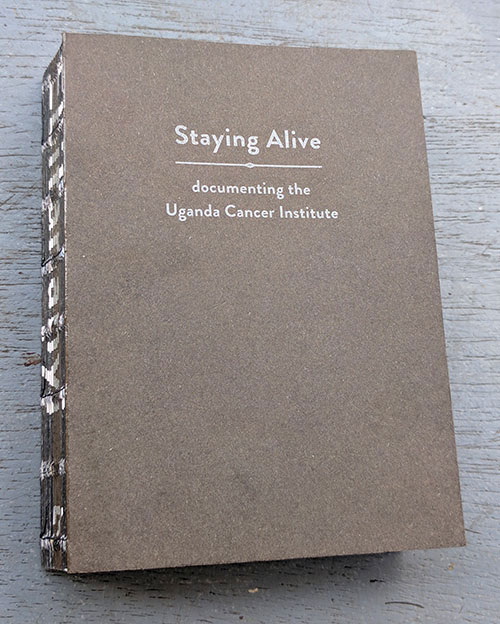
Staying Alive 5: (re)viewed
 UCI AT 50: The Uganda Cancer Institute (UCI) that started on August 8, 1967 is celebrating 50 years. One of the activities in the month-long celebrations is a launch of a book this week – STAYING ALIVE – that documents the journey of Uganda Cancer Institute from 1967-2017. This blog post, from HIPUganda, is one in a series that has five exc
UCI AT 50: The Uganda Cancer Institute (UCI) that started on August 8, 1967 is celebrating 50 years. One of the activities in the month-long celebrations is a launch of a book this week – STAYING ALIVE – that documents the journey of Uganda Cancer Institute from 1967-2017. This blog post, from HIPUganda, is one in a series that has five exc
Kampala, Uganda| HIPUGANDA | I put down the dark book and heave. The questions that ravage my mind are mostly “Why?”. Ironically, I received this book from Rumanzi Canon while admitted. I had had a conversation with Andrea shortly before about giving it a look.
I wasn’t grappling with cancer but diseases have many similarities. They do bring sorrow.
The title is “Staying Alive”. For a book that talks about cancer and the Uganda Cancer Institute where the word is “That is where you are sent to die,” it is an unusual title yet very meaningfully, very well, chosen.
It is a documentation of the Uganda Cancer Institute, profiling it from the 60’s and 70’s when it was at its height to the time of its repurposing into a bigger complex. For the person who never went there before its new face, for the person who understood little about cancer before its boom in the new millennium, the book keeps alive faces, spaces, smells, sounds of a place that only persists in memory for what might be a few of us.
It is uncanny though. UCI thrived in the 70’s according to Marissa. Only 6% percent patients were lost to follow up across all Uganda. Journals in the US were filled with progress about Burkitt’s Lymphoma. Her questions meet different answers some saying it was a scientific unit and not needing to be affected the way political units were.
According to Professor Charles Olweny…”if you did your work and avoided confrontation with his soldiers, you were safe…UCI was a showpiece”.
That said, archives show scrambling for repairs, electricity black outs, food shortages, breaks in medical supplies and more. Still it looked to be more successful than by 2013.
RELATED STORY: What Uganda is teaching us about cancer (click to read)
RELATED FACEBOOK POST
RELATED STORY
A Rolling stone: An autobiography of Prof Charles #Olweny. #UCI50 #Health #Uganda #Cancer @UgandaCancerIns https://t.co/b15ykmNicL pic.twitter.com/WRe2lUrLAF
— Louis Jadwong (@Jadwong) August 12, 2017
 The Independent Uganda: You get the Truth we Pay the Price
The Independent Uganda: You get the Truth we Pay the Price


